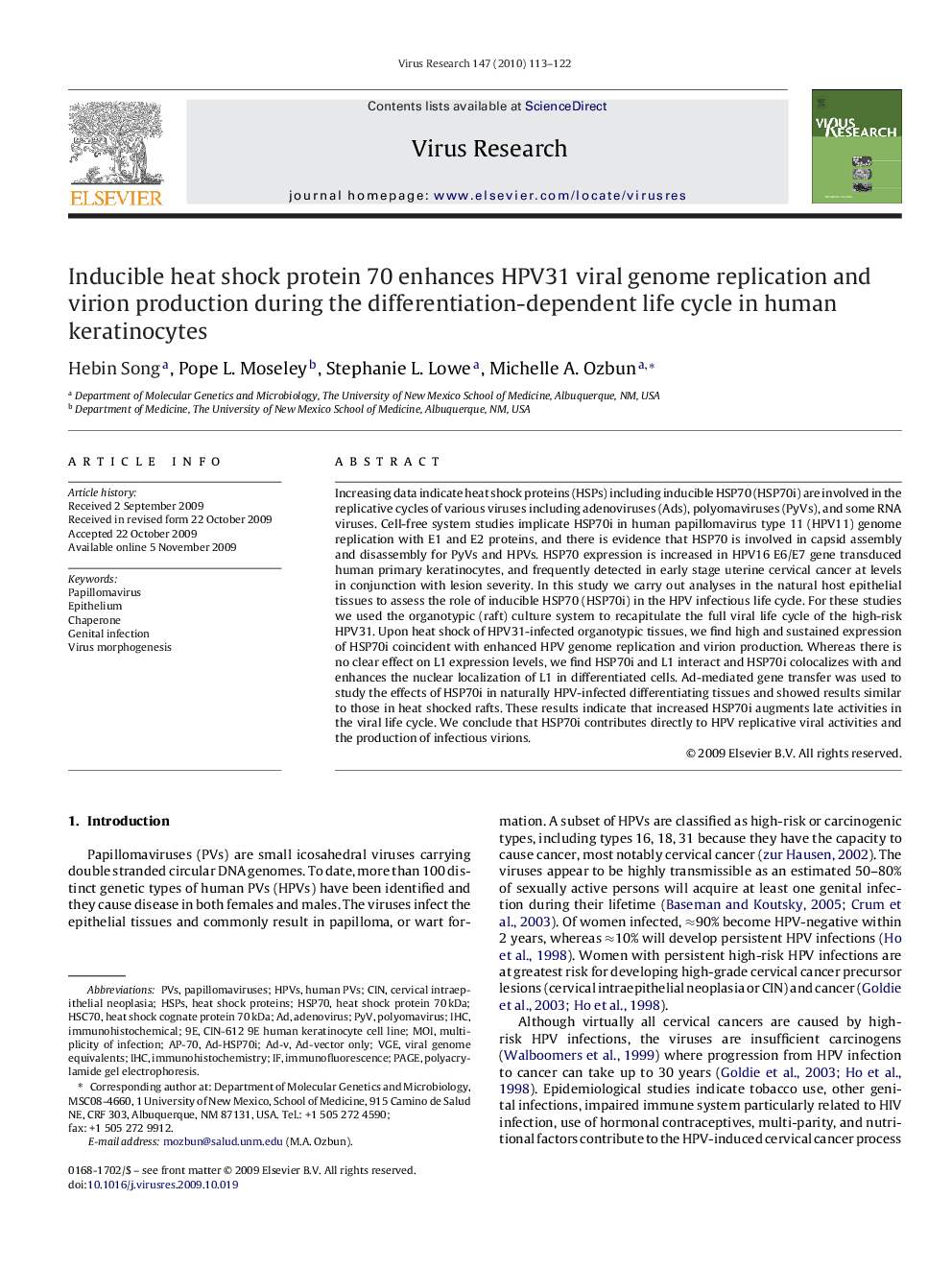| Article ID | Journal | Published Year | Pages | File Type |
|---|---|---|---|---|
| 3429986 | Virus Research | 2010 | 10 Pages |
Increasing data indicate heat shock proteins (HSPs) including inducible HSP70 (HSP70i) are involved in the replicative cycles of various viruses including adenoviruses (Ads), polyomaviruses (PyVs), and some RNA viruses. Cell-free system studies implicate HSP70i in human papillomavirus type 11 (HPV11) genome replication with E1 and E2 proteins, and there is evidence that HSP70 is involved in capsid assembly and disassembly for PyVs and HPVs. HSP70 expression is increased in HPV16 E6/E7 gene transduced human primary keratinocytes, and frequently detected in early stage uterine cervical cancer at levels in conjunction with lesion severity. In this study we carry out analyses in the natural host epithelial tissues to assess the role of inducible HSP70 (HSP70i) in the HPV infectious life cycle. For these studies we used the organotypic (raft) culture system to recapitulate the full viral life cycle of the high-risk HPV31. Upon heat shock of HPV31-infected organotypic tissues, we find high and sustained expression of HSP70i coincident with enhanced HPV genome replication and virion production. Whereas there is no clear effect on L1 expression levels, we find HSP70i and L1 interact and HSP70i colocalizes with and enhances the nuclear localization of L1 in differentiated cells. Ad-mediated gene transfer was used to study the effects of HSP70i in naturally HPV-infected differentiating tissues and showed results similar to those in heat shocked rafts. These results indicate that increased HSP70i augments late activities in the viral life cycle. We conclude that HSP70i contributes directly to HPV replicative viral activities and the production of infectious virions.
